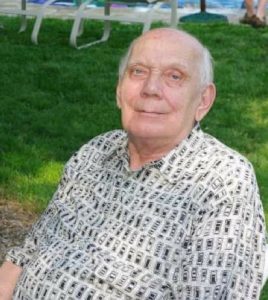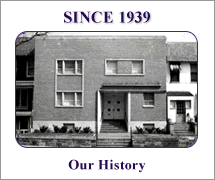
VIKTOR PUSKAR
Viktor Puskar of Silver Spring, MD passed away on March 17, 2018. Prior to moving to Maryland in 2013, he was a long time resident of New Jersey, living in Haddonfield, Piscataway, Bridgewater and Bernards Township.
He is survived by his wife of 60 years Thea; his sons Erik (Lia Mai), Arno and Hillar (Kirsten) and 6 grandchildren – Aili, Markus, Lili, Annika, Alina and Tia.
Relatives and friends may call at Collins Funeral Home, 500 University Boulevard West, Silver Spring, MD, on Saturday March 24 from 2:00 to 4:00. Burial will be at Kensico Cemetery in Valhalla NY on May 12.
Viktor was born on November 13, 1928 in Tartu, Estonia to Viktor and Hildegard Puskar. He was pre-deceased by his brothers Felix and Ivar.
In 1944 the family fled to Germany ahead of the advancing Soviet army. After the war, they lived in the DP (Displaced Persons) camps. In the fall of 1949 Viktor began studies at the Clausthal Academy for Mining. He passed his exams before immigrating to the US, arriving in New York May of 1951 aboard the USS General Muir. That fall he started studies at Columbia University, graduating with a master’s degree in mining engineering in 1954.
Shortly after graduating, he was drafted into the Army with his basic training at Fort Dix. He was in the Army for two years, serving 10 months in Korea patrolling the DMZ. He became a US citizen in 1955.
After leaving the Army he worked in New York City. Viktor was active in the Estonian community and belonged to the academic fraternity Rotalia. During the 1956 Hungarian uprising against the Soviets, the NY Estonian community organized a protest at the UN; here he met Thea Viilup and they were married in 1957.
Viktor worked as an research engineer for Block Iron, Englehard, ASARCO and Georgia Kaolin until his retirement in 1992. His areas of specialty were in fiber-reinforced cement and in the use of clay in the manufacture of paper. Over his career he was awarded five patents.
In retirement he traveled frequently and spent much time back in his beloved Estonia. He spent many months each year at his family’s farm Ülenurme and even grew and sold several crops of caraway, rapeseed and poppy seeds.
In lieu of flowers, memorial contributions may be made to the “Kingitud Elu” cancer fund or to the rebuilding fund of the Tartu Maarja chuch which was the home church of the Puskar and Muna families.












 P
P



